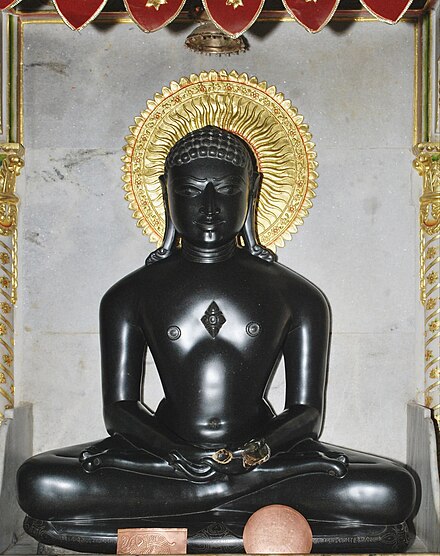Ajitanatha, also known as Ajita, is the second Tirthankara (spiritual teacher) in Jainism. In Jain cosmology, a Tirthankara is a person who has achieved enlightenment and helps guide others to the same path. Here are some key points about Ajitanatha:
Life and Significance:
Historical Context:
- Ajitanatha is believed to have lived in ancient times, long before recorded history. Jain traditions place his existence millions of years ago during the third time cycle (Avasarpini) in Jain cosmology.
Parentage:
- Ajitanatha was born to King Jitashatru and Queen Vijaya in Ayodhya. He was a prince before renouncing worldly life to pursue spiritual enlightenment.
Symbol and Color:
- Ajitanatha’s symbol is an elephant, which represents strength and power.
- His associated color is gold.
Enlightenment and Teachings:
- Ajitanatha attained Kevala Jnana (omniscience) after intense meditation and ascetic practices.
- As a Tirthankara, he re-established the Jain community, set forth the principles of non-violence (ahimsa), truth (satya), and other ethical guidelines for his followers.
Nirvana:
- Ajitanatha attained Nirvana (liberation from the cycle of birth and death) at Shikharji, a significant pilgrimage site for Jains.
Iconography:
- Ajitanatha is often depicted in statues and paintings in the lotus position (padmasana) or standing meditation posture (kayotsarga).
- His images typically include the emblem of an elephant, which helps in identifying him among other Tirthankaras.
Worship and Festivals:
- Ajitanatha is worshipped by Jains, especially during religious festivals like Mahavir Jayanti, which celebrates the life of Mahavira but also honors all Tirthankaras.
- Special rituals, prayers, and offerings are made in his honor at Jain temples.
Temples:
- There are numerous temples dedicated to Ajitanatha across India, including in places like Rajasthan, Gujarat, and Maharashtra. These temples are often intricately decorated and serve as important centers for Jain worship and pilgrimage.
Philosophical Contributions:
- Ajitanatha’s teachings emphasized the importance of self-discipline, non-attachment, and the pursuit of spiritual knowledge.
- He is considered a vital link in the spiritual lineage of Tirthankaras, maintaining and propagating the doctrines of Jainism.
Ajitanatha’s life and teachings continue to inspire millions of Jains around the world, guiding them on the path of righteousness and spiritual liberation.



